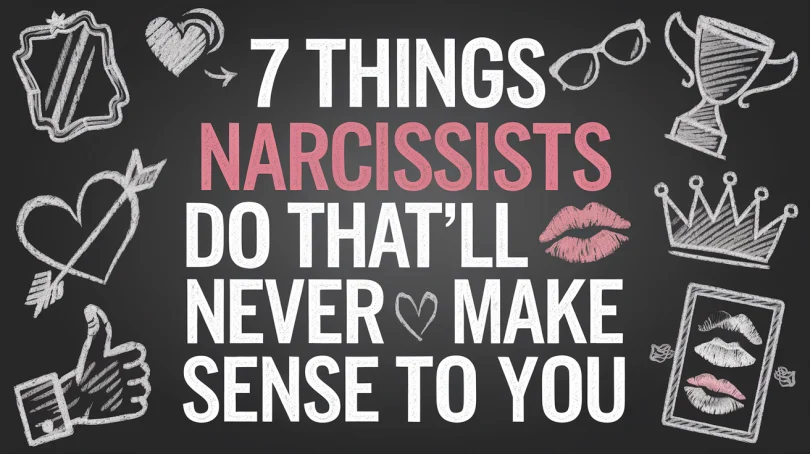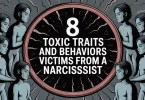The True Signs of a Narcissist: How to Recognize the Real Deal We’ve all heard the term “narcissist” thrown around casually these days used to describe anyone who’s ever acted selfishly or posted one too many selfies. But true narcissism is far more than a buzzword. It’s a deeply ingrained pattern of behavior that can leave you questioning your reality, worth, and sanity. If you’ve ever dated, married, or loved a narcissist, you know they don’t just check one box they check nearly every diagnosable criterion.
If you’ve been with a narcissist or suspect you might be this post is for you. Whether you’re still reeling from the devastation, currently entangled, or healing from the past, my goal is to bring clarity and empowerment to your experience. Let’s dive into the seven true signs of a narcissist.
1. They Can Be Great… Sometimes
One of the most maddening traits of a narcissist is their ability to be utterly delightful sometimes. After weeks of pain, betrayal, or gaslighting, they’ll come home one evening and be everything you’ve ever wanted: kind, playful, loving. It’s intoxicating because it proves they can be that person. You start thinking, “If I can just keep this going, this is the relationship I’ve always dreamed of.”
But here’s the catch: A narcissist shines when their needs are fully met when they’ve got their “supply” of validation and adoration. In those moments, they might treat you wonderfully, but it’s not about you it’s about them. A broken watch is right twice a day, but that doesn’t mean it’s reliable. Don’t mistake fleeting moments of perfection for a healthy relationship. You deserve to be loved and seen every minute, not just when it suits them.
2. Your Empathy Gets You Worse Treatment
Empathy is a beautiful quality your ability to see someone’s struggles, forgive their flaws, and understand their story. But with a narcissist, that gift becomes a weapon turned against you. How many times have you forgiven them because you felt sorry for their hardships? “They’ve been through so much,” you tell yourself. “They can’t help it.”
That empathy ushers in forgiveness, letting them off the hook for terrible behavior. And when you finally draw a line, they’ll shame you for it: “How could you judge me? You know what I’ve been through!” Suddenly, your compassion something you pride yourself on becomes their “get out of jail free” card. Worse still, the more empathy you give, the worse they treat you. To a narcissist, your kindness isn’t a virtue; it’s a green light to do whatever they want.
3. They Move On Impossibly Quickly
Think about the worst thing they’ve done to hurt you. Now imagine you’d done that to someone you love. How long would it take you to forgive yourself? How much guilt, shame, or anxiety would you wrestle with? Now compare that to how effortlessly they moved on from the same betrayal.
Many narcissists won’t even apologize they just expect you to get over it. Even if they do say “sorry,” they’ll grow impatient or angry if you’re still hurt afterward. “Why are we still talking about this?” they’ll snap as if their words erase the pain.
They might grovel initially to win you back, but it’s not remorse it’s a means to restore their supply. Their ease of moving on isn’t proof the betrayal wasn’t “that bad”; it’s a glaring sign of their lack of empathy. Don’t let it gaslight you into doubting your feelings.
4. When Caught Red-Handed, Their Excuses Defy Belief
Picture this: You find the undeniable proof they’ve cheated messages on their phone, clear as day. Their response? “What are you doing on my phone? That’s my private life!” In an instant, you’re defending yourself for invading their privacy instead of confronting their infidelity. It’s absurd, yet somehow, you might still question yourself.
This is the opposite of Occam’s Razor (the simplest explanation is usually correct). Instead of admitting the obvious, they spin a wild, convoluted tale where they’re the victim and you’re the villain. It’s excuses on steroids Murphy’s Law meets narcissism: if an excuse can be made, no matter how ridiculous, they’ll make it. The crazier the story, the more it reveals about them, not the situation.
5. They Let You Drown When You Need Them Most
You’ve seen their bad behavior before, but deep down, you’ve always believed: “If I were truly in trouble, they’d be there for me. We’ve been through too much for them not to.” Then disaster strikes a health crisis, financial ruin, or a family breakdown and you’re sinking. You look to them for a lifeline, and they stand by with indifference or flimsy excuses.
This is a shattering realization: the person you’ve sacrificed for, who you’ve stood by through thick and thin, won’t save you when you’re drowning. For many, it’s a point of no return a moment they’ll never forget. You can’t understand that kind of abandonment. Don’t shame yourself for expecting better; your belief in their humanity reflects your character, not theirs.
6. Their Emotions Aren’t Like Yours
When you threaten to leave, they might cry, beg, or seem distraught. It’s tempting to think, “See? They do feel like I do!” But their tears aren’t fake they’re just not for you. A narcissist’s pain comes from losing their supply, not from seeing you hurt. When you’re in agony, their focus is on what it costs them.
Your pain often stems from guilt or empathy hurting someone you love cuts deep. Theirs? It’s self-centered, tied to their loss. Don’t mistake their tears over you for tears for you. Their emotional register operates on a different wavelength, one that prioritizes their needs above all else.
7. They Discard You With Shocking Ease
Once it’s over whether you leave or stop giving in they cut you off like you never existed. After years, even decades, of history, they move on at lightning speed. If you’re no longer their supply offering validation or meeting their needs you’re irrelevant. Any lingering contact is an annoyance unless it serves them.
This final gaslighting can leave you reeling: “Did I imagine it all? Was our love nothing?” No. Your love was real, even if the relationship wasn’t what you thought. The disorientation comes from their ability to sever ties without a backward glance a hallmark of narcissism that defies human connection as you know it.







Leave a Comment